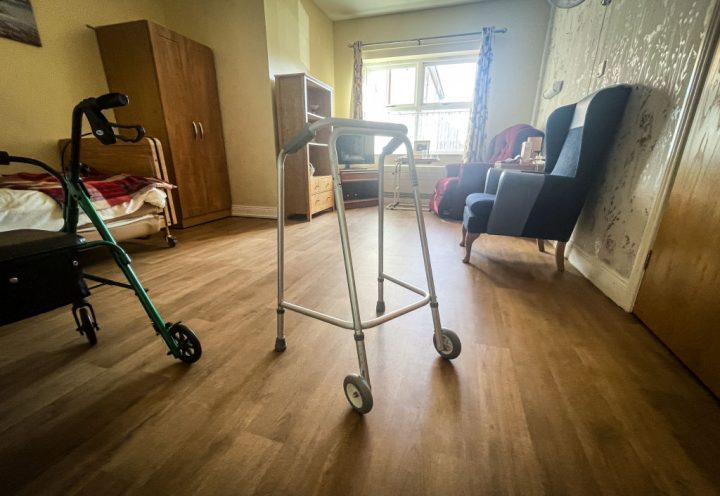Helen Whately, the care minister, gave a moving speech this week. It was personal and emotional, but it won’t get much attention.
Whately told a health conference organised by the Nuffield Trust about the final months of her grandmother’s life. Her grandmother had reached the age of 100 and was living independently, enjoying walks in the countryside, a spot of gardening and reading, she told the audience. But then, she had a fall, and while Whately said she would spare the conference the details of what happened next, there was a period of five months in which the centenarian was stuck in hospital. She was ‘occasional receiving treatment, but mostly waiting for discharge’, Whately said.
We are so used to the social care sector barely existing that we think it is normal for a fall to mean the end of someone’s life
By the time she could finally be discharged she was bedbound, and died two weeks after returning home. You could hear the emotion in Whately’s voice as she spoke. ‘I don’t know why it was so hard to get her out of hospital,’ the minister added. She then said she knew this was a story that was repeated across the country and had been for years.
Whately told this story at the start of her speech not because she wanted to use just one case to illustrate an entire system failure, but because she wanted to underline how important this was to her. ‘There’s nothing like a personal experience,’ she explained. She then went on to outline some of the policies the government had announced recently to help move patients out of hospital, but acknowledged that she was having to be patient about the pace of reform.
The reason I say this won’t get much attention is in part because Whately can’t announce the big reforms that are necessary to stop these kinds of stories being so common. There isn’t the political impetus or capital, or indeed the time. That’s the case for Labour, too, who have conceded that overarching social care reform will be a second term issue if they make it into government.
But the second reason is that the social care crisis is so widespread that many people in the room and across the country have this same end-of-life story about their own relatives. It is not acceptable in any way and yet it is normal. It has become the wallpaper to elderly life and death, and that means it is harder for what should be a scandal to get the attention and outrage that it deserves.
Often in the history of healthcare, it is the individual stories of failure that catalyse wider change. A sense that someone didn’t get what they deserved from the NHS. But we have become so used to the social care sector barely existing that we think it is normal for a fall to mean the end of someone’s life when it wasn’t the fall that hastened their decline, but the time stuck in hospital, not mobilising or being stimulated and instead being exposed to multiple infections, that did it. We shouldn’t accept that as the way people go.
Whately is one of the very few politicians who comes out well from the Lockdown Files. She was arguing that the restrictions on care homes were ‘inhumane’ and that elderly residents were at risk of ‘just giving up’ because they had been deprived of basic contact with their loved ones for months. What is also inhumane is a system that has left us thinking it is perfectly normal that someone cannot get out of hospital and back home.







Comments